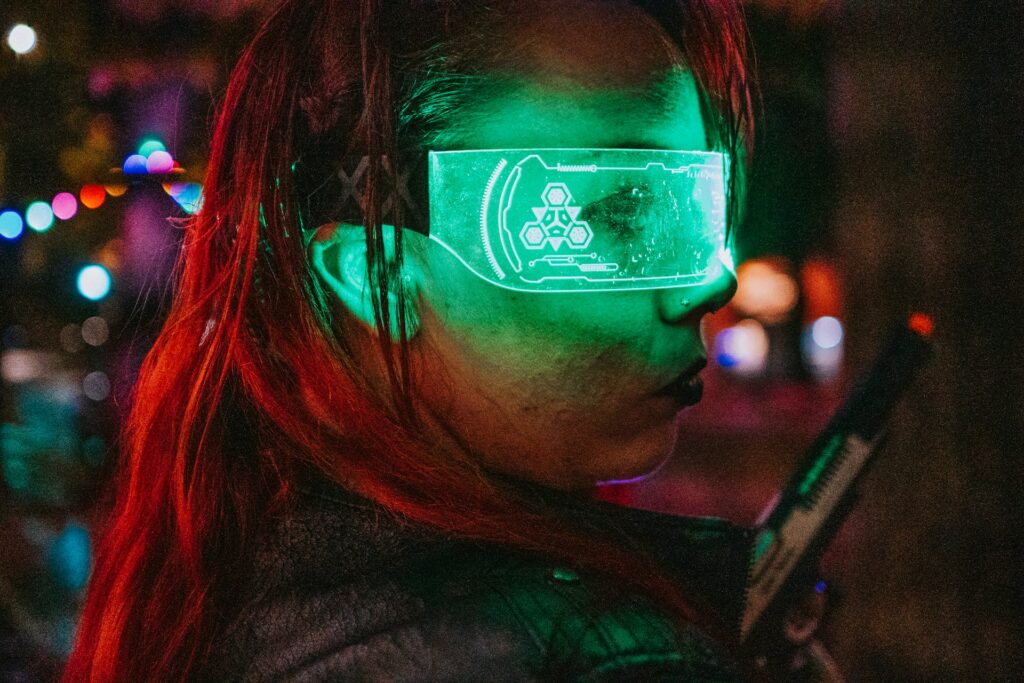NFTs and Digital Ownership: Fading Hype or Long-Term Reality?

NFTs and Digital Ownership: Fading Hype or Long-Term Reality?
Over the course of the last several years, non-fungible tokens (NFTs) have established themselves as one of the most hotly debated advancements in the world of digital assets. NFTs fascinated investors, producers, and technology enthusiasts alike with their promise to change digital ownership, art, collectibles, and intellectual property. Nevertheless, as the initial buzz dies down and the volatility of the market becomes more evident, concerns arise: Are NFTs a fad that will eventually go away, or do they signify a long-term change in the way that we own and trade assets that exist in the digital realm?
1. Comprehending Non-Fungible Tokens (NFTs) and Digital Ownership
Non-fungible tokens (NFTs) are distinctive digital tokens that are kept on blockchain networks. They provide provable ownership of digital goods like as art, music, films, virtual real estate, and in-game items. NFTs are non-fungible, which means that each token is unique and cannot be directly swapped for another one, which is different from cryptocurrencies such as Bitcoin or Ethereum, where each token is identical and can be exchanged for another one on a one-to-one basis.
2. The Market Boom and the Hype in the Early Stages
Celebrity endorsements, high-profile auctions, and attention from the mainstream media were all factors that contributed to the tremendous expansion that the NFT market witnessed between the years 2020 and 2022. Brands were trying out limited-edition non-fungible tokens (NFTs) in an effort to increase audience involvement, and digital artworks were being auctioned for millions of dollars. These events fostered the idea that NFTs represented the next phase of digital riches.
3. Issues That Non-Fungible Tokens are Confronting
NFTs are confronted with a number of obstacles, in spite of their potential:
- The prices of NFT assets are very speculative and are prone to significant changes. This is known as market volatility.
- Concerns Regarding the Environment: Traditional blockchain networks need a large amount of energy to operate, which raises concerns about sustainability.
- Conflicts Regarding Intellectual Property: The ownership of a non-fungible token (NFT) does not necessarily guarantee the owner copyright or reproduction rights, which might lead to legal issues.
- Fraud & Scams: Investor trust has been impacted by phishing scams, plagiarism, and bogus projects using non-fungible tokens (NFTs).
4. Non-Fungible Tokens (NFTs) in Gaming and Virtual Worlds
Gaming and virtual worlds are two of the most potential uses of non-fungible tokens (NFTs). It is possible for players to purchase, sell, and trade in-game goods, skins, or virtual land with verifiable ownership. This results in the creation of new business models for developers and an increase in engagement, as digital assets possess real-world value within the context of these ecosystems.
5. Non-Fungible Tokens (NFTs) in Art, Music, and Entertainment
Non-fungible tokens (NFTs) allow artists and musicians to generate revenue from their work without relying on conventional middlemen like galleries, record companies, or streaming platforms. Non-fungible tokens (NFTs) enable creators to automatically receive royalties via smart contracts every time an NFT is exchanged. This creates sustainable income streams and reshapes the creative economy.
6. Brand Engagement and Enterprise Adoption
Non-fungible tokens (NFTs) are being tested by brands for use in marketing, loyalty programs, and digital collectibles. Non-fungible tokens (NFTs) provide the opportunity to create experiences that are one of a kind, which strengthens consumer engagement while also unlocking new possibilities for revenue. Examples of these experiences include branded avatars and virtual footwear.
7. Considerations of a Legal and Regulatory Nature
The legal framework around non-fungible tokens (NFTs) is currently in the process of developing. There are a variety of nations that are now engaged in discussions over issues related to consumer protection, securities regulations, and taxes. In order for non-fungible tokens (NFTs) to make the shift from assets that are speculative in nature to digital property that is more widely accepted, it is essential that there be regulatory certainty.
8. Non-Fungible Tokens (NFTs) and the Idea of Authentic Digital Ownership
In a world where it is easy to make copies of material and distribute them, NFTs provide the potential of real digital ownership. The use of blockchain verification guarantees that ownership is both unique and traceable, which provides a degree of validity and provenance that was previously impossible to demonstrate on the internet.
9. Environmental Innovations in NFT Technology
Blockchain platforms are implementing methods that use less energy, such as proof-of-stake networks and layer-2 solutions, in order to deal with issues related to the environment. One of the most significant complaints of the non-fungible token ecosystem has been that it is neither sustainable or accessible. These improvements, however, address this issue by making NFTs more sustainable and accessible.
10. The Possibility of Long-Term Value
There is a high probability that non-fungible tokens (NFTs) will continue to be used in areas where digital ownership has inherent value, such as gaming, collectibles, intellectual property, and virtual real estate. Their usefulness goes beyond mere conjecture; in addition to that, they provide artists, customers, and enterprises with real uses.
11. Reality Compared to Hype
Despite the fact that the early speculative frenzy around non-fungible tokens (NFTs) has subsided, the technology itself continues to hold promise for the future. The market is becoming more mature and is shifting its attention away from sales that are driven by excitement and toward more practical considerations, such as utility, interoperability, and real-world applications. This development suggests that NFTs may be able to establish a solid and long-term position in the digital economies of the future.
Although non-fungible tokens (NFTs) are no longer at the height of their popularity, they nevertheless have considerable promise for revolutionizing the concept of digital ownership. NFTs provide producers with novel methods for verifying authenticity, transferring value, and providing rewards, and they may be used for a variety of purposes, ranging from gaming and entertainment to brand engagement and intellectual property. Non-fungible tokens (NFTs) are more than just a fad that will soon be forgotten; they are setting the groundwork for a new age of digital ownership and economic innovation, despite the fact that difficulties continue to exist, such as market volatility, sustainability, and regulation.




